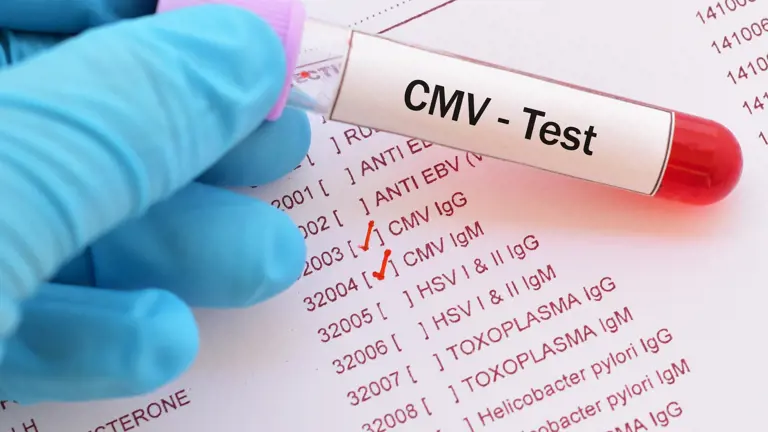Donor approval process
Screening
Screening
The screening programme
Our screening method is our raison d'être. It has been at the centre of our operations since we opened in 2004 and we continue to change and update it on a continuous basis. Our screening programme adheres to all national guidelines and EU requirements for screening.
The donor approval process explained
Did you know that only 5-7% of the people who apply to become sperm donors are approved to donate?
In this video, Donor Coordinator Lilian explains our donor approval process to Jo and Viv, an LGBT couple who document their path to parenthood on Instagram.
You'll get the answer to common questions like 'How long does it take to become a donor?' and 'What are the different steps of the donor approval process?'
The donor approval process
The first time the potential sperm donor visits the sperm bank, they provide a sample. We run tests to determine sperm quality and the ability of the sperm cells to survive freezing and thawing.
Our donor coordinators look into diseases that have affected the sperm donor's family going back three generations. The purpose of this examination is to ensure that there's no history of serious hereditary diseases. This background forms the basis for approval of the sperm donor by our Medical Team.
The sperm donor receives counselling about what it means to be a donor with us. This includes ID release vs No ID release donor status.
Another sperm sample is examined. The sperm quality and the ability of the cells to survive freezing and thawing are tested once again.
Our doctors carry out a thorough health check to ensure that the donor is in good health.
Blood and urine samples are collected and tested for infectious diseases and genetically recessive diseases. In addition, a chromosome analysis is carried out. The results are evaluated and approved by our geneticist.
The sperm donor does a personality test, the result of which is then included on his profile.
The sperm donor receives further counselling, records an audio interview, and writes a handwritten note.
The sperm donor is officially approved by our Medical Director.
All sperm donors are tested regularly while donating to us.
In spite of our thorough screening method, it is not possible to fully eliminate the risk of transferring a genetic/hereditary disease. The marginal risk can be reduced further if the woman undergoes a genetic test as well.
Before
What are potential donors screened for?
At European Sperm Bank, we screen our donors for the most common serious hereditary illnesses and sexually transmitted infections. We also screen for a selection of other infections on a continuous basis.
Our donors are chosen based on a range of parameters for which they are tested during the screening process:
- The quality and number of sperm cells.
- In order to minimise the risk of the donor being a carrier of e.g. hereditary breast cancer or other dominant hereditary diseases, we carry out a Genetic Risk Assessment based on medical history going back at least three generations.
- Our doctor carries out a thorough physical examination to reduce the risk of the donor transferring hereditary conditions.
- Screening for sexually transmitted infections.
- Genetic tests including a chromosome analysis and screening for contagious diseases.
- Personality evaluation.
If a donor applicant fails to pass one of the steps listed above, he cannot become a sperm donor.
After
What happens once the sperm donor has been approved?
Once an applicant has been approved as a sperm donor, we continue to test them for contagious diseases. This is done every quarter using a serological test and NAT/NAAT screening.
If we encounter infection of any kind, the sperm donor is quarantined until the disease has been treated. If the sperm donor is infected with hepatitis B, hepatitis C, syphilis, HIV I/II, HTLV I/II, Ebola they will no longer be able to donate.
We determine whether there is new information to respond to with every donation. If, for example, the sperm donor has reported travelling, we will test for any relevant travel-related infections.
When are the donations released?
We adhere to national and international legislation and therefore do not release donations until we have established that the donor did not have any contagious diseases on the donation day in question.

The medical history review
During the screening process, we review the medical history of the donor candidate and his family members.
The purpose of the medical history review is to minimise the risk of a donor passing on a serious condition to children conceived with his sperm.
By speaking to the donor candidate, we collect information about conditions affecting him or his family members. Our Medical Director and clinical geneticist then assesses whether a given condition is most likely hereditary or if it is caused by other factors, such as an unhealthy lifestyle (e.g., smoking, poor diet, excessive alcohol consumption).
As part of the review, the donor also needs to pass a physical examination at a specially trained GP.
If our Medical Director concludes that there is an increased risk that children could inherit a serious condition from the donor candidate, we disqualify him.
Want to know more?
If you would like to learn more about the medical history review, you can download a pdf explaining the process in greater detail.
What hereditary diseases do we screen for?
We do not approve applicants with unusual chromosome analyses (karyotypes) and/or who are established as carriers of one or more of the following diseases:
- Cystic Fibrosis
- Spinal Muscular Atrophy (SMA)
- Sickle Cell Anaemia
- Thalassemia
- Tay-Sachs disease
- Deafness (DFNB1). The most common mutation in the GJB2 gene, called c.35delG.
If a donor is assessed by our Medical Team to come from an ethnic background with a higher risk of carrying specific conditions, we expand our testing accordingly.
We have three extended test panels: one for men of Jewish ethnicity, one for men of Faroese ethnicity and one for men of French-Canadian ethnicity.
The specific diseases a donor is screened for is always listed in the donor’s Medical Summary.
Screening reduces risk, but does not eliminate it
While all donors undergo comprehensive screening—including genetic testing, medical history review, and clinical assessments—it is important to note that no screening process can eliminate all risk. Even for the conditions we specifically test for, there remains a residual risk that certain disorders may not be detected or may develop later. This reflects the current limits of medical science and available technology.
One example is our screening for SMA (Spinal Muscular Atrophy), where a residual risk of approximately 0,08% still exists despite thorough testing.
That said, using a thoroughly screened donor remains safer, from a genetic risk perspective, than natural conception with a partner who has not undergone any form of testing.
The CMV status of our donors
CMV is a common infection that most people get at some point in their lives. We regularly test all our donors to determine their CMV status.

What is CMV?
CMV (Cytomegalovirus) is a herpes virus that is transmitted through saliva or body fluids. It is a common infection that most people get at some point in their lives.
The majority of CMV infections are harmless, and most people do not experience any symptoms. Some people may develop minor symptoms resembling a cold or the flu. In rare cases, CMV can cause health issues for unborn babies.
Once a person has been infected with CMV, the virus remains dormant in the body, but it is not contagious. The virus can be reactivated if the person's immune system is impaired.
The risk of donor sperm transmitting CMV to women or unborn children is extremely low. Even so, we discard donations made by donors with an active CMV infection as a precautionary measure.
Distinguishing between an active and a dormant CMV infection
We regularly test all our donors to determine their CMV status. We do so by screening their blood for the two types of CMV antibodies: IgM and IgG.
When someone becomes infected with CMV, the human body fights the virus by producing IgM and IgG (short for "Immune globulin M" and "Immune globulin G").
What are IgM antibodies? This type of antibodies is present in the blood of someone who has an active (new or re-activated) CMV infection that could infect other people.
If a donor tests positive for IgM antibodies, we discard the donations made during his period of being actively infected with CMV. We are able to do this because we screen donors regularly and don't make donations available for sale until test results come back negative for a range of infectious diseases, among them CMV.
What are IgG antibodies? IgG antibodies are present if a person had a CMV infection at some point in his life. The virus is not active - and thus, not contagious - unless his blood also contains IgM antibodies.
Finding a donor's CMV status
If you would like to know the CMV status of a certain donor, please reach out to us via email, phone or chat. You will find our contact information at the bottom of this page.
Here are the diseases we screen for
Blood sample examination
- HIV I/II
- HTLV I/II
- Hepatitis B
- Hepatitis C
- Syphilis
- CMV
Urine sample examination
- Chlamydia
- Gonorrhea
Depending on the travel history of the sperm donor, we might test for
- Zika
- West Nile Fever
The tests that we perform
ABO - Rh blood typing
The examination reveals the donor's cell count for red blood cells, white blood cells, platelets, and haemoglobin.
The examination reveals the donor's liver function, kidney function, cholesterol, iron level, and blood sugar.
To minimise the risk of the donor being a carrier of e.g. hereditary breast cancer or other dominant hereditary diseases, we go through their medical history going back at least three generations.
Chromosome analyses and screening for the most common serious hereditary diseases with autosomal recessive inheritance.
Thorough physical examination by our doctor in order to minimise the risk of the donor transferring a hereditary condition.
Screening for sexually transmitted infections. We screen for other infections through blood or urine samples on a regular basis.
Rule out the risk of 400+ diseases
We screen our donors well, but if you're the birthing parent, your genes also affect your child's health. By screening your genes for hereditary disease with GeneXmatch, you'll gain greater peace of mind.


